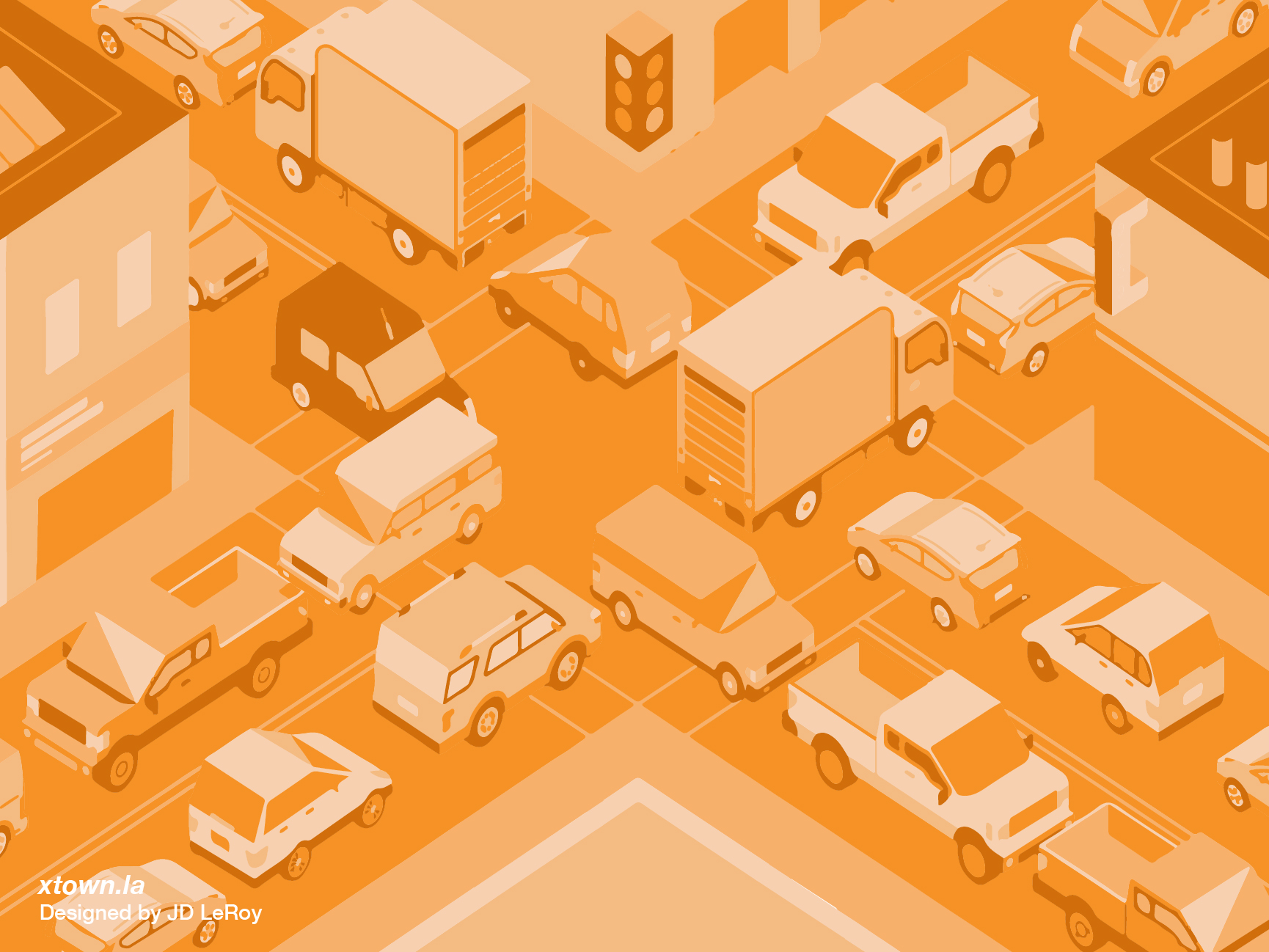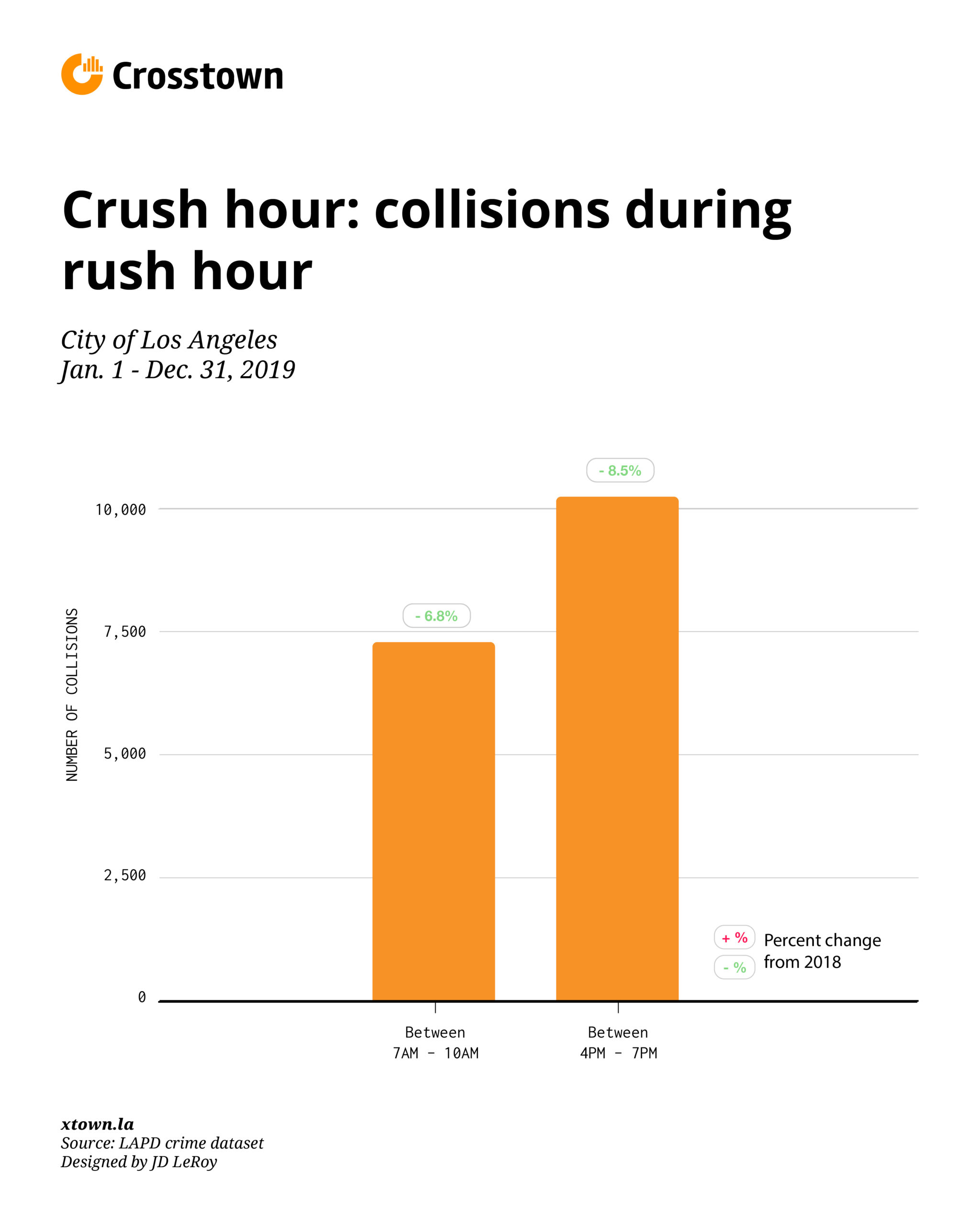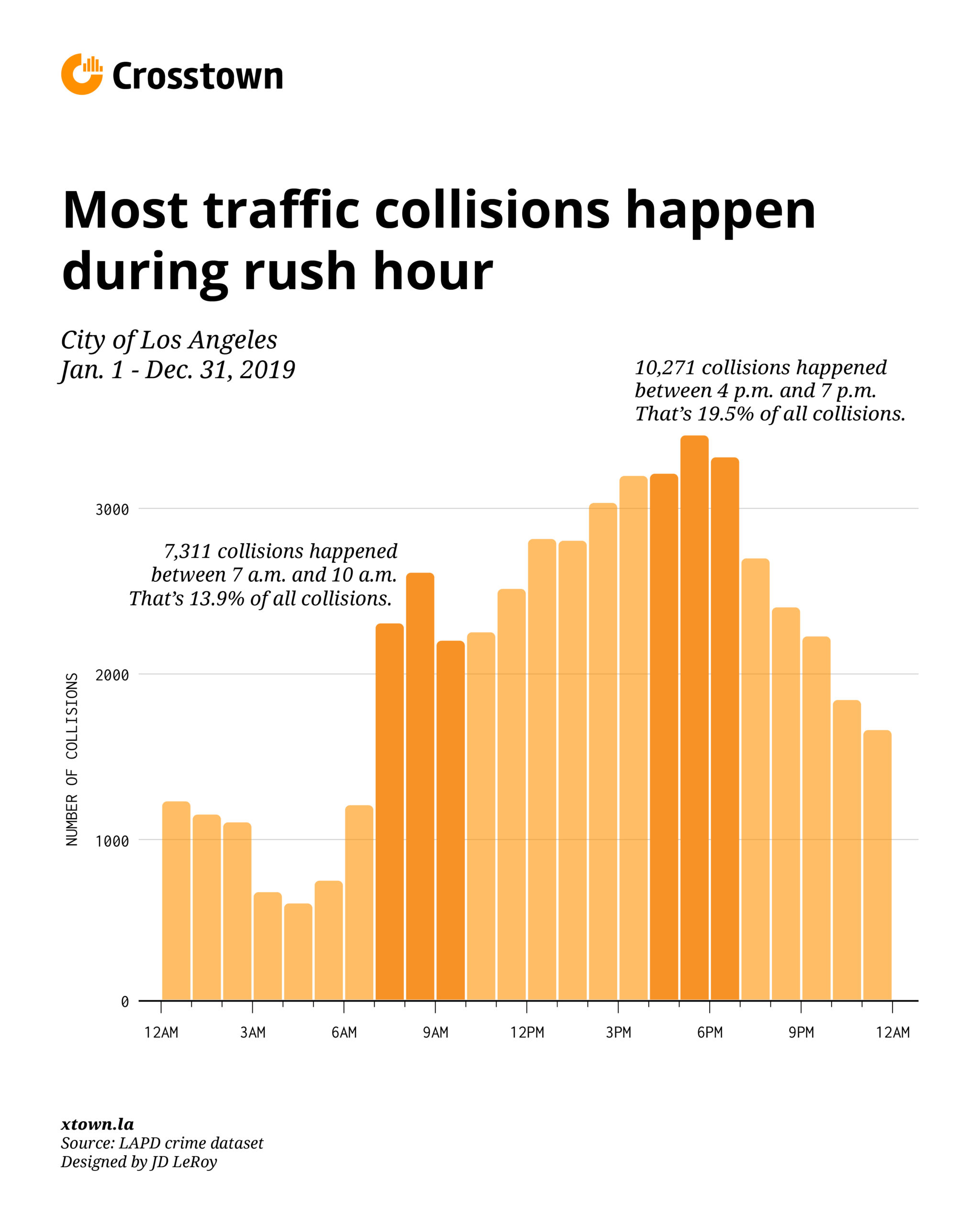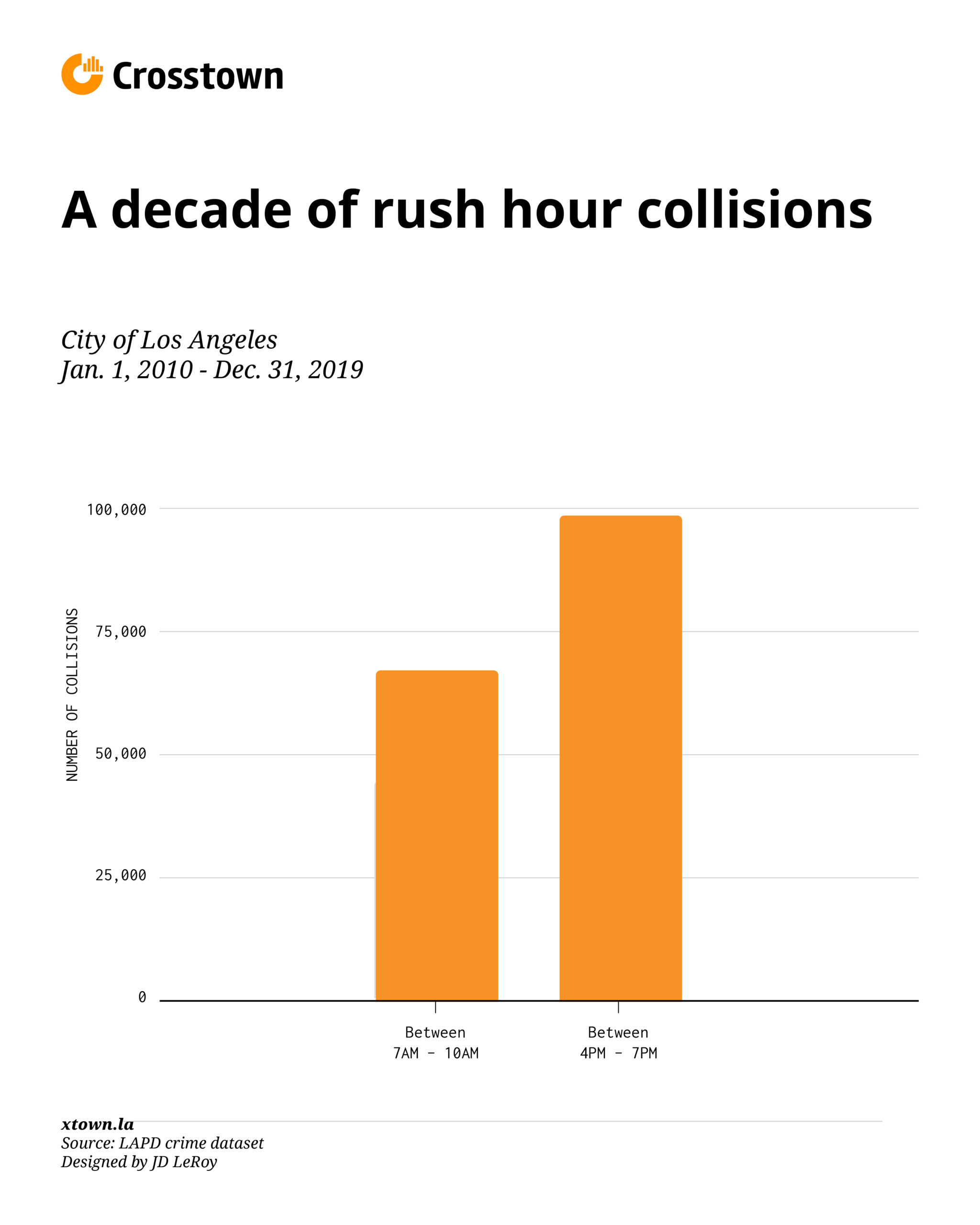One out of three collisions happens during rush hour

There were 52,570 traffic collisions reported to the Los Angeles Police Department last year, down nearly 8% from 2018. In both years, more than one third of collisions took place during rush hour.

Almost 14% of all traffic accidents happened during morning rush hour, between 7 a.m. and 10 a.m. Nearly 20% occurred during evening rush hour, from 4 p.m. to 7 p.m. Collisions can include vehicles, pedestrians, cyclists or property, according to the LAPD.

Los Angeles Police Chief Michel Moore is adamant that the “culprit” for many collisions is the cellphone. He said he’s particularly worried because adults are setting a poor example with distracted driving: “We’re teaching a generation of children in the backseat about what to do with that cellphone.”
One of those evening rush-hour collisions happened at 6:45 p.m. on Friday, Nov. 1 while Anthony Marez was sitting in bumper-to-bumper traffic on the 710 South freeway headed to South Gate to visit family.
Marez said he was at a complete stop in his black 2006 Kia Spectra when the car behind him rear-ended his vehicle, pushing his car into the vehicle in front of him.
“As I looked in the rearview mirror, I could see the guy behind me wasn’t slowing down at all,” said Marez. “He ended up hitting me at almost full speed. … My car took the most damage.”
Adding insult to injury, Marez said he had just finished paying for repairs from another accident he was involved in over the summer.
Rush hour has long been a riskier time to drive in LA. One-third of car crashes also occurred during rush hour over the last decade.

How we did it: We examined LAPD publicly available data on reported traffic collisions during 2019 compared to 2018. For neighborhood boundaries, we rely on the borders defined by the Los Angeles Times. Learn more about our data here.
LAPD data only reflect crimes that are reported to the department, not how many crimes actually occurred. In making our calculations, we rely on the data the LAPD makes publicly available. On occasion, LAPD may update past crime reports with new information, or recategorize past reports. Those revised reports do not always automatically become part of the public database.
Want to know how your neighborhood fares? Or simply just interested in our data? Email us at askus@xtown.la.






